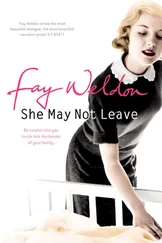REMEMBER ME
FAY WELDON

Cover
Title Page REMEMBER ME FAY WELDON
1
2
3
4
5
6
7
8
9
10
11
12
13
14
15
16
17
18
19
20
21
22
23
24
25
26
About the Author
Also by Fay Weldon
Copyright
About the Publisher
Monday morning, six o’clock.
Who’s asleep?
The doctor, the doctor’s wife, the doctor’s children (alleged) but not the doctor’s cat, who sits waiting on the bathroom windowsill for the family’s awakening, and his own sliced ox-liver, comfort and repose.
Two blocks away, in his tall terrace home, Jarvis the architect sleeps, and so does his second wife Lily beside him, and so does their small son Jonathon in the adjacent room. Do Jarvis and Lily dream sweet dreams, or guilty dreams? Sweet dreams.
Jarvis Katkin is the doctor’s patient. The doctor’s wife is Jarvis’s employee, and a little else besides.
Who’s asleep?
Not Madeleine, Jarvis’s first wife; not at all. Four blocks farther on, in her sorry basement home, Madeleine lies awake on her lumpy mattress, as is her custom at this hour of the morning, and curses Jarvis, his second wife Lily and their son Jonathon; but the curses of the living are clouded and have little power. See how Jarvis, gently waking, turns to Lily and fondles her white, brown-tipped breasts, smooths her smiling lips with his coarse and capable finger. Their love is blessed, not cursed. So far.
Hilary the schoolgirl, Madeleine’s daughter, Jarvis’s firstborn, wakes at the stroke of six, feels alone and frightened, and climbs into her mother’s bed, and lies there sleepless, cold and lardy, against her mother’s hard and feverish side (there where once her father lay and slept). She remains uneasy and uncomforted, as well she might, like any usurper to an abdicated throne.
Seven o’clock. Good morning.
Margot, the doctor’s wife awakes, assuming this to be a day like any other. Why should she not? The bed is warm, deep and familiar – the doctor and his wife have slept in it for some fifteen years, and made love in it some 1,500 times, reserving this pleasure (by and large) for each other alone. Pleasant images frequent the dreams of the doctor’s wife. Why not? Since the advent of the doctor’s Emergency Service, nights in this suburban corner house, where leafy ways meet, have been peaceful and unplagued by nightmares, disturbed by nothing worse than the padding of the doctor’s cat, off on his inconsequential journeys into the black night. The doctor’s cat is a battered, randy tom, once black, now rusty, wormy within and flea-ridden without. The doctor doses his cat with free sample antibiotics and steroids, but to no avail. Margot regards him with admiration and abhorrence mixed. He is the doctor’s cat, not hers.
Good morning!
Margot, wife and mother, wakes from sleep refreshed, as befits her virtuous self. She is a little woman, smooth and plump, nicely bosomed, like some pet woodpigeon. Margot’s face is round and bland; her brown and curly hair is sensibly short. Margot’s sharp straight little nose still peels from August’s holiday in the sun. Margot stirs. Margot yawns. Margot’s teeth are white, small and even; Margot’s tonsils are healthy. Margot remains in good health not so much because of her husband’s care but in spite of the lack of it.
Those who care for all the world, as the doctor does, sometimes seem to have trouble caring for just one person. Or so Margot’s friend Enid once remarked, observing the neglected whitlow on Margot’s thumb. Enid finds fault with any husband other than her own. Once she started on him, where would she stop?
Enid makes trouble. Enid should keep her mouth shut. Enid’s words hurt more than any whitlow. She should reserve her opinion for inter-departmental memos. Enid is a civil servant.
Margot’s brown button eyes fly open. Margot sighs. Listen now as Margot eavesdrops on herself, upon the babel of consciousness within; those multitudinous inner voices which ceaselessly define the self by shift and change, as the shore defines the sea and the sea defines the shore.
Listen:
Oh, I am the doctor’s wife, waking. I am Margot, housewife, mother, waking to the world I have made; a warm and homely place, in which others grow if not myself. How nice! But something lingers after sleep, some sense of sorrow, apprehension. What is it? Am I in mourning for myself, lost somewhere long ago, drowned in the sea of other people’s demands, a family’s expectations? No, as the eyelids flutter, apprehension vanishes, sorrow, dissolves, reality sweeps in. I am Margot, wife and mother, folding in night thoughts before the day as a sailor folds in a sail before a rising wind. Beside me, sleeping too late, Philip. Downstairs, rising too early, the children, breakfasting no doubt on cereal and too much milk. Philip’s milk. Philip comes first. Husbands do.
Up gets Margot, the doctor’s wife, slipping her feet into sensible Marks and Spencer slippers, wrapping her body in a blue seersucker terylene-and-cotton dressing gown, which goes through the washing machine without damage and needs no ironing, and is so familiar to her family they would be at a loss to describe it. Up gets Margot, with her thick little body, wifely: her past unacknowledged, her future unquestioned, making herself useful as women do.
Up gets Margot to a day like no other, in which it is no different from any other day.
Bright and early.
Up gets Lily Katkin, the butcher’s daughter, Jarvis the architect’s second wife, to a day like no other before or since.
Up gets Lily bright and early, to prepare breakfast for Jarvis her husband and Jonathon her son.
Good Lily!
Lily squeezes fresh chilled oranges into the blender, adds honey, and blends for fifteen seconds. She has iced glasses waiting. She put them in the refrigerator the night before, as is her custom. Lily’s husband and Lily’s son wait obediently at the breakfast counter, their faces and hands washed, their hair combed, marvelling at such wifely and maternal excellence. The coffee is filtering, newly made from freshly ground, lately roasted beans: (low-calorie milk powder will be added to the cups, alas, and not cream, but never mind). Eggs from the health-food shop have been boiled for three and three-quarter minutes: the starch-reduced bread has been evenly toasted, shaken free of crumbs and placed in the little white china toast-rack. The tablecloth is white and clean: the china blue and white: knives and forks, carefully washed by hand and not in the machine, retain their strength and colour.
Jarvis Katkin sits, waits, watches, marvels. Lily is Jarvis’s lucky ticket in the lottery of life. (So Lily’s mother Ida wrote from New Zealand on the occasion of their marriage.) Jarvis has large pale blue eyes, heavily lidded, slightly bloodshot. He has thick, pale, dusty eyebrows. Jarvis’s skin is loose from dieting; folding either side of a bold, coarse-grained, handsome nose. Jarvis is not at his best this morning. Last night’s drink and this morning’s sex still fuddle his perceptions of the world. Jarvis breathes heavily as he waits for his egg in the pause between orange juice and coffee. The orange juice, so fresh and cold, trickled in a chilly stream down his throat and to his stomach, and now lies there, acid and uneasy. Jarvis does not like orange juice but scarcely cares to say so. Jarvis hiccups gently. Lily frowns (a pretty sight). Lily does not want anything to be out of control, least of all Jarvis’s digestion. Lily would have his insides on the outside if she could, the better to observe them, understand them, and control them. Lily cannot abide a mystery.
Читать дальше













